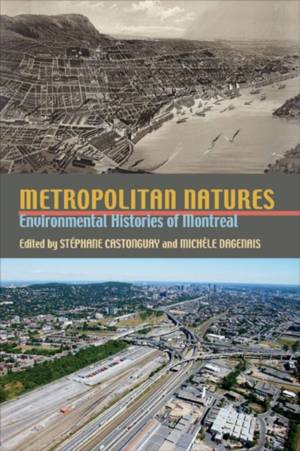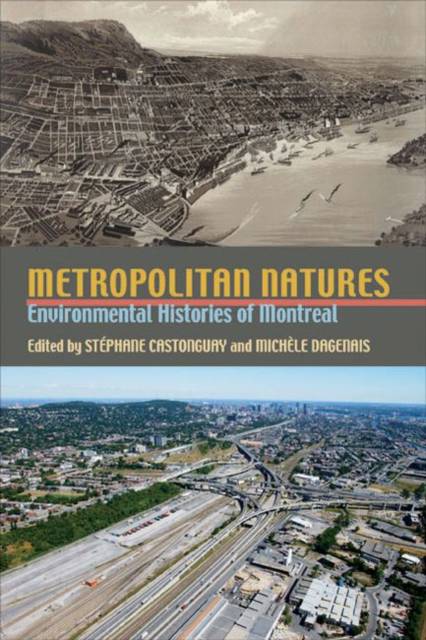
- Retrait gratuit dans votre magasin Club
- 7.000.000 titres dans notre catalogue
- Payer en toute sécurité
- Toujours un magasin près de chez vous
- Retrait gratuit dans votre magasin Club
- 7.000.0000 titres dans notre catalogue
- Payer en toute sécurité
- Toujours un magasin près de chez vous
Metropolitan Natures
Environmental Histories of Montreal
91,95 €
+ 183 points
Description
One of the oldest metropolitan areas in North America, Montreal has evolved from a remote fur-trading post in New France into an international center for services and technology. A city and an island located at the confluence of the Ottawa and St. Lawrence Rivers, it is uniquely situated to serve as an international port while also providing rail access to the Canadian interior. The historic capital of the Province of Canada, once Canada's foremost metropolis, Montreal has a multifaceted cultural heritage drawn from European and North American influences. Thanks to its rich past, the city offers an ideal setting for the study of an evolving urban environment. Metropolitan Natures presents original histories of the diverse environments that constitute Montreal and it region. It explores the agricultural and industrial transformation of the metropolitan area, the interaction of city and hinterland, and the interplay of humans and nature. The fourteen chapters cover a wide range of issues, from landscape representations during the colonial era to urban encroachments on the Kahnawake Mohawk reservation on the south shore of the island, from the 1918-1920 Spanish flu epidemic and its ensuing human environmental modifications to the urban sprawl characteristic of North America during the postwar period. Situations that politicize the environment are discussed as well, including the economic and class dynamics of flood relief, highways built to facilitate recreational access for the middle class, power-generating facilities that invade pristine rural areas, and the elitist environmental hegemony of fox hunting. Additional chapters examine human attempts to control the urban environment through street planning, waterway construction, water supply, and sewerage.
Spécifications
Parties prenantes
- Editeur:
Contenu
- Nombre de pages :
- 336
- Langue:
- Anglais
- Collection :
- Tome:
- n° 66
Caractéristiques
- EAN:
- 9780822944027
- Date de parution :
- 01-06-11
- Format:
- Livre relié
- Format numérique:
- Genaaid
- Dimensions :
- 160 mm x 234 mm
- Poids :
- 612 g

Les avis
Nous publions uniquement les avis qui respectent les conditions requises. Consultez nos conditions pour les avis.





